|
Books Should Be Free Loyal Books Free Public Domain Audiobooks & eBook Downloads |
|
|
Books Should Be Free Loyal Books Free Public Domain Audiobooks & eBook Downloads |
|
Philosophy Books |
|---|
|
Book type:
Sort by:
View by:
|
By: Aristotle (384 BC - 322 BC) | |
|---|---|
 Metaphysics
Metaphysics
Metaphysics is essentially a reconciliation of Plato’s theory of Forms that Aristotle acquired at the Academy in Athens, with the view of the world given by common sense and the observations of the natural sciences. According to Plato, the real nature of things is eternal and unchangeable. However, the world we observe around us is constantly and perpetually changing. Aristotle’s genius was to reconcile these two apparently contradictory views of the world. The result is a synthesis of the naturalism of empirical science, and the mysticism of Plato, that informed the Western intellectual tradition for more than two thousand years... | |
By: Friedrich Nietzsche | |
|---|---|
 Ecce Homo
Ecce Homo
The philosopher Friedrich Nietzsche’s autobiography, Ecce Homo, was the last prose work that he wrote before his illness in 1889. Coming at the end of an extraordinarily productive year in which he had produced The Twilight of the Idols and The Antichrist, Nietzsche shuns any pretense at modesty with chapter titles include “Why I am so Wise”, “Why I am so Clever” and “Why I Write Such Excellent Books”. His translator Anthony M. Ludovici states, Ecce Homo “is not only a coping-stone... | |
By: Max Heindel (1865-1918) | |
|---|---|
 The Rosicrucian Mysteries
The Rosicrucian Mysteries
A primer for those interested in the basic philosophy, beliefs & secrets of the Rosicrucians. | |
By: Unknown | |
|---|---|
 Oscar Wilde: Art and Morality. A Defence of The Picture of Dorian Gray
Oscar Wilde: Art and Morality. A Defence of The Picture of Dorian Gray
“Who can help laughing when an ordinary journalist seriously proposes to limit the subject-matter at the disposal of the artist?” “We are dominated by journalism…. Journalism governs for ever and ever.” One of the nastiest of the British tabloids was founded a year too late to join in the moral panic generated to accompany Oscar Wilde’s court appearances in 1895. Yet there was no shortage of hypocritical journalists posing as moral arbiters to the nation, then as now. This compendium... | |
By: Plato (424/423 BC - 348/347 BC) | |
|---|---|
 Apology
Apology
The Apology of Socrates is Plato's version of the speech given by Socrates as he unsuccessfully defended himself in 399 BC against the charges of "corrupting the young, and by not believing in the gods in whom the city believes, but in other daimonia that are novel" (24b). "Apology" here has its earlier meaning (now usually expressed by the word "apologia") of speaking in defense of a cause or of one's beliefs or actions (from the Ancient Greek ἀπολογία). | |
By: Various | |
|---|---|
 Girl Scout Collection
Girl Scout Collection
These articles, pamphlets, and stories relating to the Girls Scouts of America touch on the history, activities, ideals, and traditions of this remarkable girls' organization. Though some of the articles appear redundant, they were selected to represent a contemporary view spanning five years of the organization's early popularity (1917-1921). Of significance are the detailed descriptions of Girl Scout involvement in war work during what is now known as World War I. Girl Scouts were prepared through their training for merit badges to be independent, resourceful, reliable, and helpful... | |
By: Immanuel Kant (1724-1804) | |
|---|---|
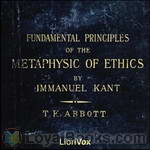 Fundamental Principles of the Metaphysic of Morals
Fundamental Principles of the Metaphysic of Morals
The Fundamental Principles of the Metaphysic of Morals, also known as The Groundwork of the Metaphysics of Morals or Foundations of the Metaphysics of Morals or Grounding of the Metaphysics of Morals, is Immanuel Kant's first contribution to moral philosophy. It argues for an a priori basis for morality. Where the Critique of Pure Reason laid out Kant's metaphysical and epistemological ideas, this relatively short, primarily meta-ethical, work was intended to outline and define the concepts and arguments shaping his future work The Metaphysics of Morals. However, the latter work is much less readable than the Fundamental Principles. | |
By: the Three Initiates (1908) | |
|---|---|
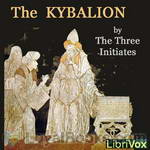 The Kybalion
The Kybalion
The Kybalion: Hermetic Philosophy is a 1908 book claiming to be the essence of the teachings of Hermes Trismegistus, published anonymously by a group or person under the pseudonym of “the Three Initiates”. (Introduction by Wikipedia) | |
By: James Allen (1864-1912) | |
|---|---|
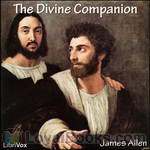 The Divine Companion
The Divine Companion
James Allen was a British philosophical writer known for his inspirational books and poetry and as a pioneer of the self-help movement.In the introduction Lily Allen writes: "It cannot be said of this book that James Allen wrote it at any particular time or in any one year, for he was engaged in it over many years and those who have eyes to see and hearts to understand will find in its pages the spiritual history of his life. It was his own wish that The Divine Companion should be the last manuscript of his to be published. 'It is the story of my soul,' he said, 'and should be read last of all my books, so that the student may understand and find my message in its pages.'" | |
By: Elizabeth Klett (1867-1936) | |
|---|---|
 Six Characters in Search of an Author
Six Characters in Search of an Author
Six Characters in Search of an Author (Sei personaggi in cerca d’autore) is the most famous and celebrated play by the Italian writer Luigi Pirandello. Pirandello, in the preface to the play, says that whenever a reader opens Dante’s Inferno, Francesca will drift down from the dark wind in her circle of Hell and tell the Pilgrim her story; and it will always be for the first time – just as the Mother in Pirandello’s play at one point makes an agonizing cry, always for the first time. Each character sees events and the other characters differently... | |
By: Aristotle (384 BCE-322 BCE) | |
|---|---|
 De Anima
De Anima
On the Soul (Greek Περὶ Ψυχῆς (Perì Psūchês), Latin De Anima) is a major treatise by Aristotle on the nature of living things. His discussion centres on the kinds of souls possessed by different kinds of living things, distinguished by their different operations. Thus plants have the capacity for nourishment and reproduction, the minimum that must be possessed by any kind of living organism. Lower animals have, in addition, the powers of sense-perception and self-motion (action). Humans have all these as well as intellect... | |
 On the Heavens
On the Heavens
On the Heavens (Greek: Περί ουρανού, Latin: De Caelo or De Caelo et Mundo) is Aristotle's chief cosmological treatise. In it Aristotle argues that the Earth is a sphere by pointing to the evidence of lunar eclipses. Aristotle also provides a detailed explanation of his theory of 'gravity' arguing that things which contain 'earth' fall towards the centre of the Universe because 'earth' is naturally attracted to the centre of the Universe. Aristotle argues that if the planet Earth was moved to the location of the Moon then objects which contain 'earth' would not fall towards the centre of the Earth but rather towards the centre of the Universe... | |
 On Generation and Corruption
On Generation and Corruption
On Generation and Corruption (Ancient Greek: Περὶ γενέσεως καὶ φθορᾶς, Latin: De Generatione et Corruptione, also known as On Coming to Be and Passing Away) is a treatise by Aristotle. Like many of his texts, it is both scientific and philosophic (although not necessarily scientific in the modern sense). The philosophy, though, is essentially empirical; as in all Aristotle's works, the deductions made about the unexperienced and unobservable are based on observations and real experiences... | |
By: Plato (426-347 BCE) | |
|---|---|
 Meno
Meno
Meno (Ancient Greek: Μένων) is a Socratic dialogue written by Plato. Written in the Socratic dialectic style, it attempts to determine the definition of virtue, or arete, meaning in this case virtue in general, rather than particular virtues, such as justice or temperance. The goal is a common definition that applies equally to all particular virtues. Socrates moves the discussion past the philosophical confusion, or aporia, created by Meno's paradox (aka the learner's paradox) with the introduction of new Platonic ideas: the theory of knowledge as recollection, anamnesis, and in the final lines a movement towards Platonic idealism.. (Introduction by Wikipedia) | |
By: Max Stirner (1806-1856) | |
|---|---|
 The Ego and His Own
The Ego and His Own
In this book, his most famous, Max Stirner presents a philosophical case for a radical egoism that shuns the socially-oriented outlooks of both "establishment" ideologies and of revolutionaries in favor of an extreme individualism. The book is most widely talked about today only through the lens of other philosophers' thought: Karl Marx and Friedrich Engels launched a famous assault on it in The German Ideology, and some draw a connection between Stirner's thoughts here and Nietzsche's egoism a generation later. But it is worth reading in its own right, as much for its lyricism as the challenge of its philosophical proposals. | |
By: St. John Chrysostom (349-407) | |
|---|---|
 Commentary on Galatians
Commentary on Galatians
St. Chrysostom’s Commentary on the Epistle to the Galatians is continuous, according to chapter and verse, instead of being arranged in Homilies, with a moral or practical application at their close, as in his exposition of other Epistles. It was written in Antioch, as Montfaucon infers from a reference which the Author, makes upon Chap. i., ver. 16 to other of his writings, which certainly were written about the same time in that city. (Introduction from the preface by John Henry Newman) | |
By: Ludwig Feuerbach (1804-1872) | |
|---|---|
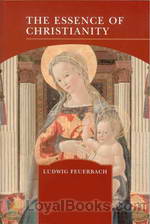 The Essence of Christianity
The Essence of Christianity
Taking issue with Hegel’s sense that God, as Logos, is somehow central to all that is, Feuerbach explores his own notion that Christianity, as religion, grew quite naturally from ordinary human observation. Only upon deeper, systematic reflection did people postulate a divine source–God. Religious teaching which loses sight of its own essential rootedness in human experience runs the risk becoming overly abstract, disconnected even, from realities which shape humanity and which impart meaning and dignity to life... | |
By: Camille Flammarion (1842-1925) | |
|---|---|
 Omega: The Last Days of the World
Omega: The Last Days of the World
Omega: The Last Days of the World is a science fiction novel by astronomer Camille Flammarion. On 25th century Earth, a comet is on a path to collide with the Earth ending it all. Astronomers predict different scenarios as to how they will all die depending on the chemical composition of the comet. Omega probes the philosophical and political consequences that arise as the human race faces the end of the world. | |
By: Various | |
|---|---|
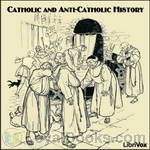 Catholic and Anti-Catholic History
Catholic and Anti-Catholic History
G.K. Chesterton and James Walsh join Hilaire Belloc in an energetic rollout of the means by which history becomes propaganda, to the damage, not only to truth, but to the human soul. | |
By: Arnold Bennett (1867-1931) | |
|---|---|
 Self and Self-management: Essays about Existing
Self and Self-management: Essays about Existing
Bennett's essays always provide food for thought and bring a wry smile to the lips. Human nature, it appears, changes little over the ages, and Bennett's writing stands the test of time, though in the case of some of the essays in this eclectic collection, it is well to remember that they were written at the time of the First World War and the fight for women's suffrage. | |
By: H. G. Wells (1866-1946) | |
|---|---|
 Anticipations
Anticipations
Wells considered this book one of his most important, a natural follow-up to such works as his Man of the Year Million and The Time Machine. His goal was to get people to think and act in new ways. The book starts with a look at how humans get along socially and how they carry out their business ventures. It then discusses how these elements influence others, such as politics, the world of work, and education. H. G. tried to make clear how the current social order was disintegrating without preparing another to take its place. He then traced the roots of democracy, which in its present state he saw as unworkable. Instead, he proposed a new republic. He also critiqued modern warfare. | |
By: Aristotle (384 BCE-322 BCE) | |
|---|---|
 Parva Naturalia
Parva Naturalia
Parva Naturalia [the "short treatises on nature" (a conventional Latin title first used by Giles of Rome)] is a collection of books by Aristotle, which discuss natural phenomena involving the body and the soul. The books are as follows:I - On Sensation and the SensibleII - On Memory and RecollectionIII - On Sleeping and WakingIV - On DreamsV - On Prophecy in SleepVI - On Longevity and Shortness of LifeVII - On Youth and Old Age, Life and Death VIII - On Respiration | |
By: Arthur Conan Doyle (1859-1930) | |
|---|---|
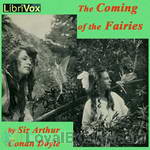 The Coming of the Fairies
The Coming of the Fairies
After a number of deaths in his close family, Sir Arthur Conan Doyle turned to spiritualism in hope of finding proof of the afterlife. Being open in this way, he wanted to believe that spirits and other supernatural being including fairies were real. Because of this he believed the photographs of fairies taken by the Cottingley girls were proof of the existence of such beings. In this book he presents his stance on the issue. Eventually it was proven that the photographs were indeed a hoax. | |
By: Plato (424-348 BC) | |
|---|---|
 Laws
Laws
Νόμοι (Laws) is Plato's final dialogue written after his attempt to advise the tyrant Dionysius II of Syracuse. The dialogue takes place between: an Athenian Stranger (Socrates? A god in human form?); the quiet Lacedaemonian Megillus; and the Cretan Cleinias. The Stranger asks whether humans live to be more effective at waging war or if there is something more important a legislator should seek to achieve. During their pilgrimage Cleinias discloses his role in the establishment of a new colony... | |
By: G. K. Chesterton (1874-1936) | |
|---|---|
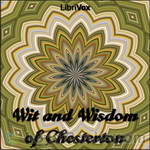 Wit and Wisdom of Chesterton
Wit and Wisdom of Chesterton
In this collection, Bevis Hillier has put together some of Chesterton's essays in "The Defandant", "Varied Types" and "Tremendous Trifles". These 12 pieces were chosen to giving a peek into the margins of Chesterton's work and give a sense of the distinctive flavor of his mind. They were also chosen with an eye to showing what a complex and fascinating character he was. | |
By: Samuel D. Gordon (1859-1936) | |
|---|---|
 Quiet Talks about Jesus
Quiet Talks about Jesus
So far as I can find out, I have no theory about Jesus to make these talks fit into. I have tried to find out for myself what the old Book of God tells about Him. And here I am trying to tell to others, as simply as I can, what I found. It was by the tedious, twisting path of doubt that I climbed the hill of truth up to some of its summits of certainty. I am free to confess that I am ignorant of the subject treated here save for the statements of that Book, and for the assent within my own spirit to these statements, which has greatly deepened the impression they made, and make... | |
By: Edgar Thurston (1855-1935) | |
|---|---|
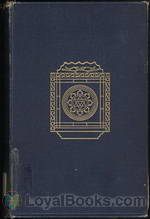 Omens and Superstitions of Southern India
Omens and Superstitions of Southern India
This book deals mainly with some aspects of what may be termed the psychical life of the inhabitants of the Madras Presidency, and the Native States of Travancore and Cochin. | |
By: George Horace Lorimer (1869-1937) | |
|---|---|
 Letters from a Self-Made Merchant to His Son
Letters from a Self-Made Merchant to His Son
Being the Letters written by John Graham, Head of the House of Graham & Company, Pork-Packers in Chicago, familiarly known on 'Change as "Old Gorgon Graham," to his Son, Pierrepont, facetiously known to his intimates as "Piggy." George Horace Lorimer was an American journalist and author. He is best known as the editor of The Saturday Evening Post. | |
By: Various (1833-1884) | |
|---|---|
 John Stuart Mill; His Life and Works
John Stuart Mill; His Life and Works
This biography is actually a series of essays by prominent personalities of the time that shed light on John Stuart Mill's life and areas of endeavor. Those areas include his experiences in India House, his moral character, certain botanical explorations, how effective he was as a critic, studies in morals and the law, and discoveries concerning political economy. They also explore ideas concerning his influence on institutions of higher learning, accomplishments as a politician, and fame as a philosopher. | |
By: Anonymous | |
|---|---|
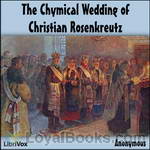 The Chymical Wedding of Christian Rosenkreutz
The Chymical Wedding of Christian Rosenkreutz
The Chymical Wedding of Christian Rosenkreutz was edited in 1616 in Strasbourg (annexed by France in 1681). It is the third of the original manifestos of the mysterious "Fraternity of the Rose Cross" (Rosicrucians). NOTE: It was translated into English for the first time in 1690 by E. Foxcroft. This translation became the source for many of the modern attempts to improve the original. The translation presented here is that of E. Foxcroft. Although the book first appeared in 1616, the story takes place over 150 years earlier... | |
By: Marcus Tullius Cicero (106-43 BC) | |
|---|---|
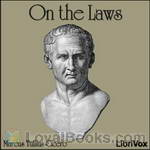 On the Laws
On the Laws
De Legibus (On the Laws) is a philosophical dialogue between: Cicero's friend Titus Pomponius Atticus; Cicero's brother Quintus; and Cicero himself. The dialogue is written in the style of Plato who was greatly revered by Cicero. De Legibus forms a continuation of Cicero's own work De re Publica (On the Commonwealth or On the Republic) and is also a response to Plato's work Νόμοι (Laws). It is unknown how many books the work originally contained but several complete books have been lost. Cicero's... | |
By: Plato (Πλάτων) (c. 428 BC - c. 347 BC) | |
|---|---|
 Republic (version 2)
Republic (version 2)
The Republic is a Socratic dialogue written by Plato around 380 BC concerning the definition of justice and the order and character of the just city-state and the just man. It is Plato's best-known work and has proven to be one of the most intellectually and historically influential works of philosophy and political theory. In it, Socrates along with various Athenians and foreigners discuss the meaning of justice and examine whether or not the just man is happier than the unjust man by considering a series of different cities coming into existence "in speech", culminating in a city (Kallipolis) ruled by philosopher-kings; and by examining the nature of existing regimes... | |